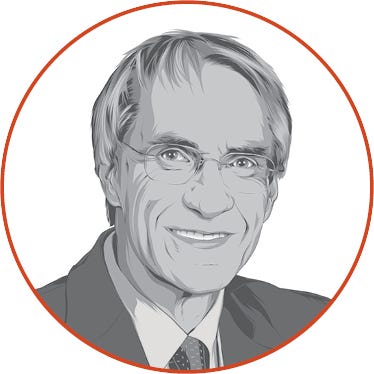
I was honored to be the keynote speaker at the 125th Annual Convention of the Virginia Bankers Association (VBA) at the Homestead Resort in Hot Springs, Virginia. This majestic, historic resort was the backdrop for the convention. I walked through the convention’s historical displays with items ranging from promissory notes dating back to the Revolutionary War, the Great Depression, World War I, and World War II and mementos from the convention attended by Elizabeth Taylor when she was married to Senator John Warner. There were pictures from prior years’ conventions and it was interesting to see the number of attendees who were the relatives of the participants in 1960s and 1970s. The relics found on display at this historic resort made the exhibit a very enjoyable experience and provided me the opportunity to reflect on my own journey through finance, academia, and time.
I was reminded of the reasons that I selected Virginia Tech over academic positions in California and Wisconsin. My decision was swayed by a simple action often overlooked in today’s high-tech world. An agricultural banker from Rockingham County, one of the top agricultural counties in U.S., attended my interview with the university. It was a personalized, handwritten letter from him offering his, the VBA, and the governor of Virginia’s support that cemented my decision to become a “Hokie”.
I accepted a new faculty position in agriculture finance at Virginia Tech, which was developed by the agriculture credit committee under the direction of the governor of Virginia. It was interesting how a little collaboration by leadership can get the wheels in motion for the betterment of the agricultural industry.
My first agricultural finance class at Virginia Tech had just 26 students. Four of those students later became bank presidents and CEOs. One other student also became the first female agricultural loan officer for Farm Credit in Virginia. Her first assignment was collection of credit that was in arrears. She was well trained for this assignment because her father was a junkyard dealer and she had grown up going out on collections with him. Today, she is an executive with Farm Credit. You never know how life’s experiences will benefit you in the future!
From that first class, we went on to develop an agricultural lending school where lenders from all sectors would come together for training. This was the first school of its kind in the U.S, and everybody said it would not work. However, the open exchange of ideas and engagement with people from banks, Farm Service Agency, Farm Credit, the agribusiness industry, and select students benefited the industry for years to come.
When this freshly minted Ph.D. graduated from Cornell, there were 525 banks in Virginia. Consolidation has reduced this number to approximately 75. Attendance at the convention has also followed a similar pattern. When I came to Virginia Tech, 800 to 1,000 people would attend the VBA convention in the 1950s, 1960s, and 1970s. Now, attendance is down to about 300 people.
It has been interesting to see the revolution of technology and banking overtime. Looking toward the future, I believe it is safe to say that the 150th celebration will see more changes in technology, people, and trends. Only time will tell how this convention, the VBA, and the industry will evolve in the coming years.
About the Author(s)
You May Also Like






